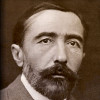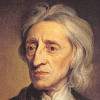“ those that men of right reason admit, are the principles allowed by all mankind; we, and those of our mind, are men of reason ”
John Locke, An Essay Concerning Human Understanding (1689). copy citation
| Author | John Locke |
|---|---|
| Source | An Essay Concerning Human Understanding |
| Topic | mankind reason |
| Date | 1689 |
| Language | English |
| Reference | |
| Note | |
| Weblink | http://www.gutenberg.org/files/10615/10615-h/10615-h.htm |
Context
“unless those men will think it reasonable that their private persuasions, or that of their party, should pass for universal consent;—a thing not unfrequently done, when men, presuming themselves to be the only masters of right reason, cast by the votes and opinions of the rest of mankind as not worthy the reckoning. And then their argument stands thus:—“The principles which all mankind allow for true, are innate; those that men of right reason admit, are the principles allowed by all mankind; we, and those of our mind, are men of reason; therefore, we agreeing, our principles are innate”;—which is a very pretty way of arguing, and a short cut to infallibility. For otherwise it will be very hard to understand how there be some principles which all men do acknowledge and agree in;”
source


